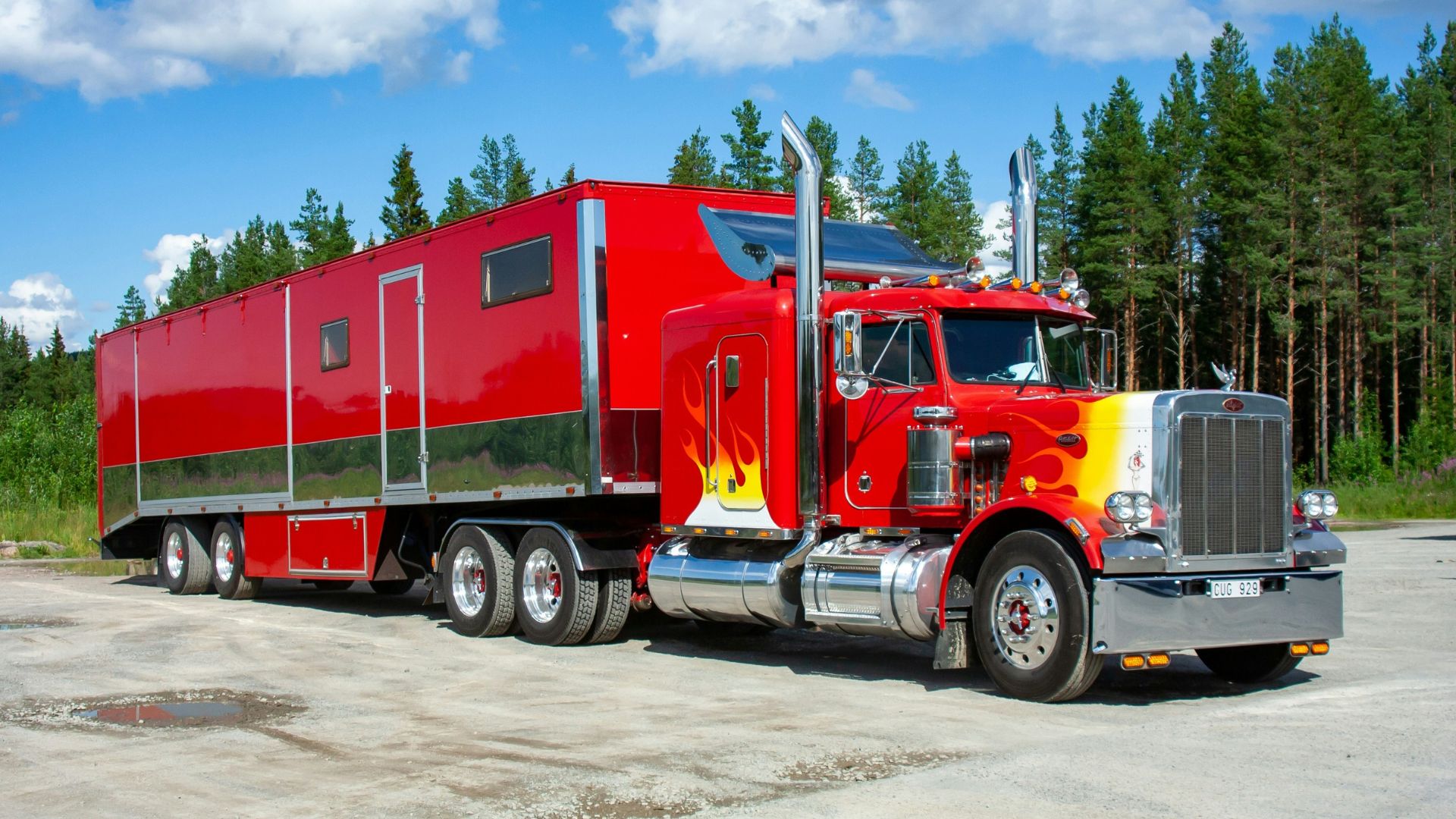How Technology Can Help You Reduce Your Cost-Per-Mile

There’s a cost for every mile a truck puts on the odometer. From fuel prices to maintenance to driver pay, finding ways to reduce your cost-per-mile can help your trucking business navigate these uncertain economic times.
Cost-per-mile is one of the most critical metrics for trucking companies. Rising fuel prices and inflation are causing expenses to rise in an industry with razor-thin margins. Technology like transportation management software can help you reduce your cost-per-mile.
In this post, we’re looking at what goes into an average cost-per-mile, why it’s important, and four ways you can reduce your cost-per-mile and optimize your fleet for the long haul.
What is Cost-per-mile and why is it important?
Cost-per-mile is the total cost to operate your fleet on a per-mile basis. This number includes fuel costs, maintenance, insurance, permits, driver wages and benefits, and administrative costs.
Understanding your cost-per-mile helps determine the total cost of owning and operating your fleet. It’s the crucial benchmark to help make better data-driven decisions to optimize your fleet and improve your bottom line.
Having a clear view of your cost-per-mile can also make it easier to bid on potential loads and determine the return on investment for your jobs.
How real-time data reduces cost-per-mile
We’re living in a data-driven world. By using transportation management software to collect and analyze vast amounts of operational data, trucking companies can gain valuable insights into their performance and identify areas where they can improve.
- Trucking companies can use real-time data to reduce their cost-per-mile by understanding vehicle location, speed, and fuel consumption.
- Real-time data can help trucking companies plan more efficient routes.
- Vehicle performance and scheduled maintenance data can help identify potential problems before they become significant issues. This can help to prevent costly breakdowns and delays and can help to extend the life of your vehicles.
- Real-time data can also improve communication between drivers, dispatchers, and other trucking company employees. By sharing information in real-time, trucking companies can improve their coordination and reduce the time their vehicles spend on the road or waiting at customer locations
Using a transportation management system with rich real-time data can help trucking companies identify inefficiencies and waste in their operations and give you concrete ways to reduce your cost-per-mile.
Route optimization and planning
When you step into any modern warehouse, you’ll see optimization in action. Whether it’s voice-based picking systems or autonomous robots, today’s warehouses are designed to save time and money from the shelf to the loading dock.
That optimization doesn’t have to end when the truck leaves the dock. Transportation software can leverage real-time data from GPS and warehouse systems to help reduce the cost-per-mile by finding the most efficient routes based on traffic, road conditions, and delivery locations. Route optimizations can also help reduce the time and fuel a truck needs to spend on the road to minimize cost-per-mile further.
Using route optimization can also help trucking companies avoid situations where trucks are driving empty or partially empty. Partial loads typically increase cost-per-mile because they use more fuel for smaller loads.
Get a TransPlus Demo
If you're looking for a powerful TMS to streamline your operations, reduce costs, and improve customer service, we've got you covered.
Utilize telematics to identify areas for improvement
Telematics software collects data from your fleet to help improve safety and efficiency. This data provides real-time information on driver behaviour and vehicle status to help improve safety and efficiency—leading to a reduction in cost-per-mile.
The data collected by telematics systems can track truck speed, fuel consumption, and real-time truck location. With this data, trucking companies can find ways to improve operational efficiencies.
For example, telematics software can identify instances where a truck is idling for extended periods. Idling wastes fuel and increases cost-per-mile costs. Trucking companies can use telematics to make more data-driven decisions about route optimization to reduce costs.
Another way telematics can improve your cost-per-mile is by identifying incorrect or poor driver behaviour. Actions like speeding, aggressive driving, and heavy braking can lead to higher fuel costs. Reducing and eliminating these behaviours can help reduce your cost-per-mile.
Streamline coordination and communication
Good communication is the key to success in any business. In trucking, coordinating and communicating effectively is critical to ensure goods are delivered on time and in good condition across multiple trucks and drivers.
Providing your drivers with real-time updates on traffic conditions, road closures, and other valuable information can also help them make better routing decisions. This can help you avoid costly delays and disruptions and ensure that your vehicles are always on the most efficient routes possible.
Transportation management software can also provide powerful communication channels to exchange information between drivers, dispatchers, and customers quickly. If there’s an unexpected delay, letting a customer know the updated delivery time can save them time—and save you from apologizing after the fact.
Good coordination can also reduce maintenance costs by ensuring that vehicles are properly maintained and serviced regularly. Paper reports can get lost but giving drivers an electronic way to submit vehicle issues can help make sure problems are tracked and fixed.
Implement a platform that can do it all
Ready to see how TransPlus can help? Fleet Manager is a powerful one-source trucking dispatch and brokerage software system that can help you reduce your cost-per-mile by:
- Improving fleet management
- Real-time visibility of your load and shipment information
- Enhanced decision-making based on real-time telematic data
Read our TMS Buyer's Guide
Navigate the TMS software landscape with our comprehensive buyer's guide - find the perfect platform for your trucking business today.

Latest From the Blog
Our Insights on Tech, Industry Trends, and News.

6 Benefits of a Rate Quote System in Your TMS

5 Benefits of Automated IFTA Reporting for Freight Carriers

